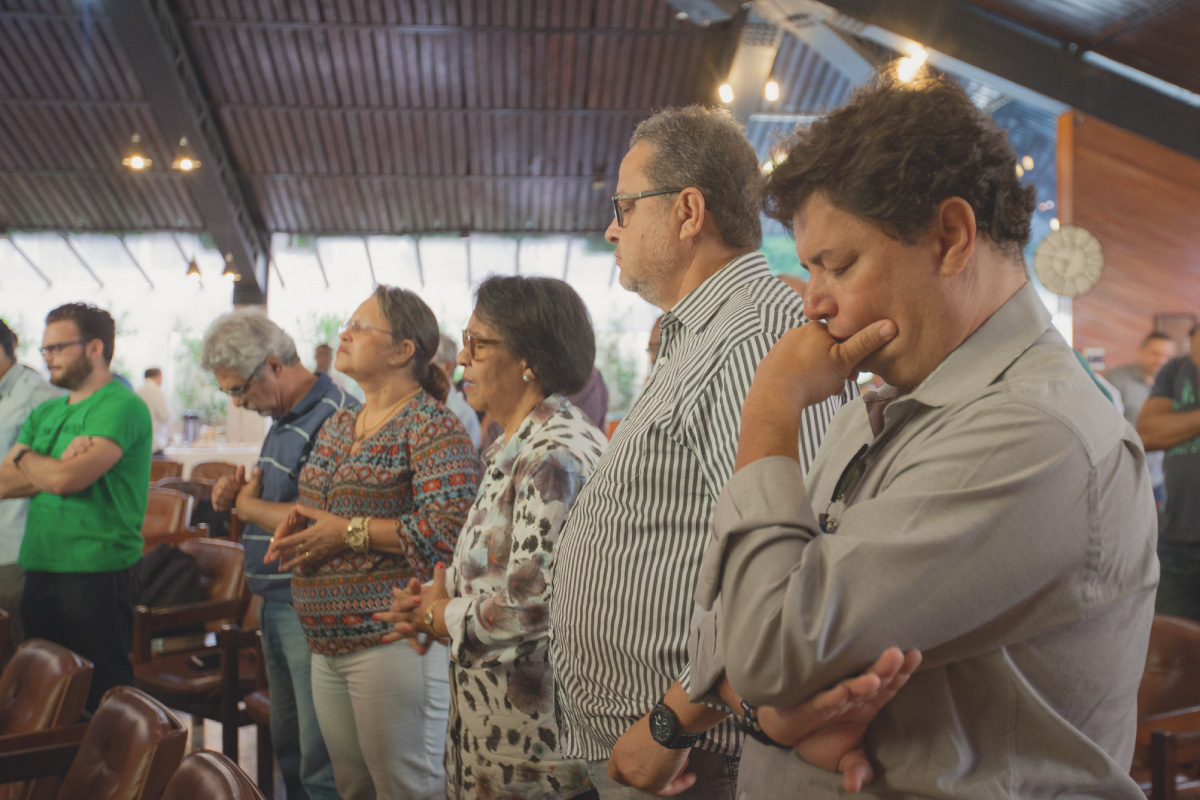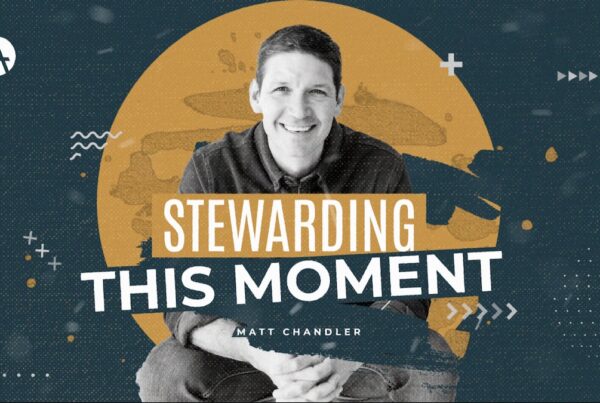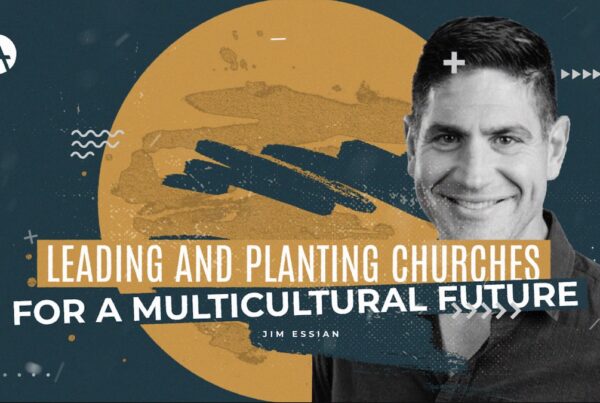In 2003, I co-planted a church in a small university town. Burdened by the lack of Gospel-centred churches in our area, we felt compelled to plant a church to reach ethnic minorities and low-income families. After much prayer and discussion we launched as two families and a handful of students. We lacked many things: funding, age, ministry experience, a sending church, theological training… the list went on. But we felt it was the right thing to do.
Five years later I was leading a seminar on church planting in a student context. I was introduced by my mentor in the following way ‘Matthew planted this church 5 years ago, and if he had come to me then and asked if I would send him out as a church planter, I would have said no way! But by the grace of God, this plant has survived…’ As I walked on stage to teach I could not help but dwell on this introduction. Not only was it the first time I had heard my mentor say this, but it was also true! From that point on, I realised that our planting story was not a model to follow, it was simply a story of God’s grace!
We need to avoid an over simplistic, naive view of church planting. The reality is, many church plants don’t survive
We can often have an over simplistic or naive view of church planting. An older church planter recently told me that he used to say ‘church planting is simple, all you need is the bible and people to teach’. Since then he has come to realise that that just is not true. It was simple for him, because he had 20 years of ministry experience behind him when he planted. It worked for me, because of a unique set of circumstances and people that God put around us at the time.
The reality is that many church plants do not survive. Through a lack of gifting and untested convictions, many young men seek to plant when they should not. There are many marriages that have been saved over the years, and church splits avoided because Acts 29 has boldly said ‘no’ to many applicants who were just not who they thought they were.
Acts 29 seeks to equip the local church to assess, train, coach and support church planters. I wish it had been around when I planted!
Why do we assess?
Pride is your greatest enemy, humility is your greatest friend.
John Stott famously said ‘Pride is your greatest enemy, humility is your greatest friend.’ We can become very precious about our conviction to plant and our ambitions regarding what the plant should look like. It is very hard to detach oneself from a project that you have poured blood, sweat and tears into. Throughout the book of Acts church planting is never an individual exercise, but the initiative of the church.
Acts 13:2-4 gloriously holds together the relationship between the work of the Holy Spirit and the work of the church. Ultimately the work of the church is the work of the Holy Spirit, and yet the Holy Spirit chooses to conduct His work though the local church. In verse 3 we see the church fully engaged – fasting, praying, commissioning and sending. But Luke makes it clear in the verses either side, that this is the Holy Spirit at work. This provides a great corrective against both individualism and institutionalism.
There is real safety in submitting our hopes to the loving gaze of more experienced church planters.
Assessment provides churches and planters with an objective and outside perspective on an applicant’s readiness to plant. Acts 29 assessors are free to graciously say what needs to be said, as they are not personally involved in the success or failure of the plant. There is real safety in submitting our hopes to the loving gaze of more experienced church planters.
When someone undergoes assessment with Acts 29, there are two areas that are being assessed. Firstly, we are assessing an applicant’s giftedness and suitability to be a church planter. Secondly, we are assessing whether or not the applicant should plant as part of Acts 29. Our strong theological position, and our rigorous assessment process means that member churches can have real confidence that they can trust and partner with other Acts 29 churches, both locally and globally.
Clear and consistent assessment procedures around the world directly enables the planting of healthy churches and facilitates ongoing partnership between churches to see more plants taking place.
How do we assess?
We are not just assessing skills, but godly character in a relational context.
Acts 29 has assessed over 1000 church planters and thus has a strong track record in this area. Recent developments to our assessment process have set out to build on this experience and make the process more relational and robust. It has long been known that interviews, whilst vital, only provide part of the data necessary to achieve an effective assessment. Assessment Centres are commonplace amongst the corporate world putting applicants through a variety of scenarios to reveal their strengths and weaknesses. Acts 29 has designed an assessment process to bring together the strengths of a typical Assessment Centre with clear biblical assessment criteria. We are not just assessing skills, but godly character in a relational context.
We also have produced a set of competencies that we believe are essential to healthy church planting. These competencies form the basis of our assessment, and they hold our assessors to account. Typically there are two different approaches to assessment.
- A quantified approach that relies heavily on competencies and seeks to score applicants on their ability to display that competency. Its strength is that it ensures questions are asked in every area. If you score above a certain threshold then you pass.
- The other approach is to rely heavily on intuitive assessors. This is a more qualitative approach, and its strength lies in giving the assessor freedom to follow their nose and approach the applicant in a holistic manner.
Acts 29 seeks to bring both together. In the assessment procedures we spend a lot of time collecting data, but our emphasis lies on our Assessment Conference where experienced planters spend time observing, talking and interviewing applicants. It has always been the case that our assessment is only as good as our assessors. Acts 29 trains and uses gifted assessors who have a strong gospel instinct and can discern when something is not right and read between the lines. But they are also trained to do so within the confines of our Core Competencies. This is crucial to ensure that assessment is shaped biblically and not by the personality or specific context of any one assessor.
If you are wondering whether or not you are a church planter, just work through our list of core competencies and skills, and honestly rate yourself. Identify which areas you feel weak in and talk to your local church leadership about how to grow in these areas.
Who do we assess?
Acts 29 assesses pastors who are about to plant a church, and pastors who lead existing churches that are church-planting churches. We assess the lead pastor as representative of their church, as it is the church that joins Acts 29. In each case, we look for clear evidence that the pastor’s conviction to plant has been tested and affirmed by a sending church.
Lead pastors who wish to undergo assessment need to meet the following criteria:
- Older than 25 years
- Have at least three years of pastoral ministry experience
- Be 12-18 months away from launching their church plant
- Know where they are planting and be living or committed to living in that area.
- Be in full agreement with Acts 29 doctrinal distinctives, vision and values.
If you do not yet meet this criteria, why not consider our pre-assessment course. It has been designed to provide you and your church with feedback on your future suitability to plant and recommendations on how your can grow and develop as a potential church planter.
For further details about assessment, please visit: www.https://www.acts29.com/planting










